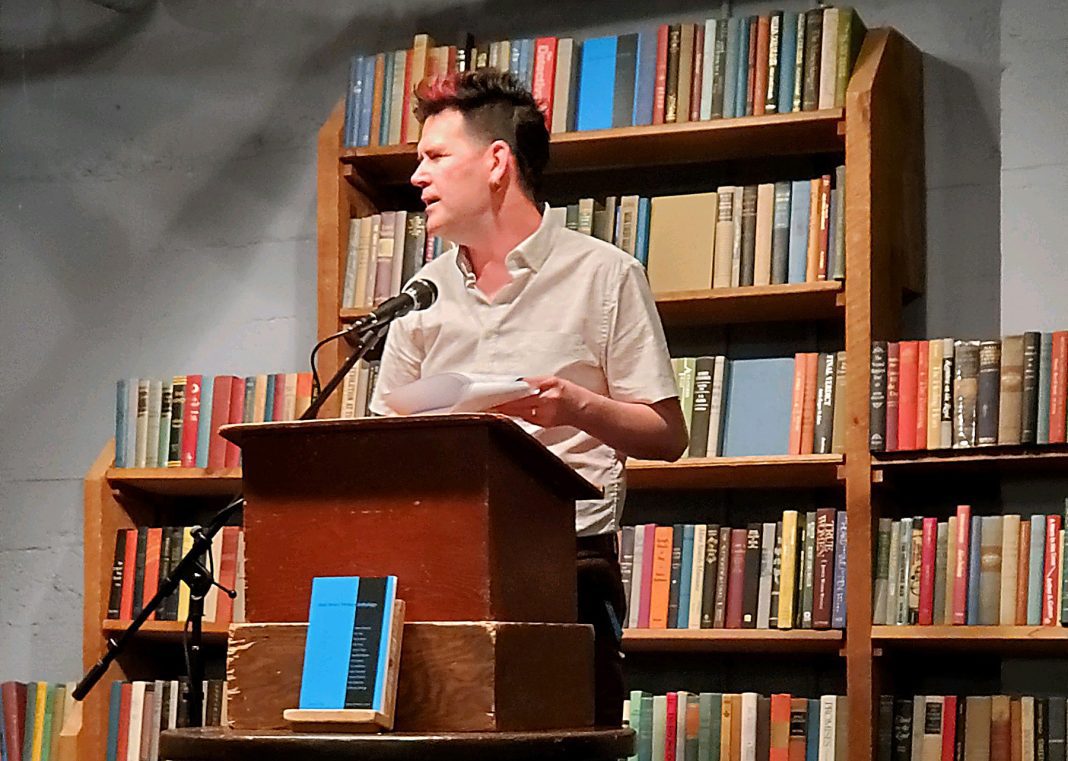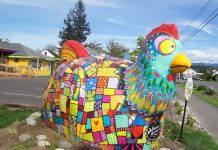Living in Bellingham and touring across Canada, the poet Jory Mickelson has quickly gained recognition in recent years both locally and across state boundaries. Their work reflects this transcendence of boundaries — drawing on experience ranging from the American West to the Pacific Northwest.
“I had gone back to Western Washington University,” says Mickelson. “I had pursued three years of a studio painting degree that I’d never finished, and began working on an English degree at Western in 2007. And then I submitted to a couple magazines and to a contest, and I won, and I was so naive and so new to writing that it was really encouraging. So, I kept submitting, and that’s sort of how I got my start.”
As a queer, nonbinary author, Mickelson writes poetry that experiments with genre and explores topics of identity, history, and nature.
“One inspiration for my work is the natural world and ecosystems we inhabit,” Mickelson says. “I’ve always had a keen attention to my surroundings. I grew up in rural Montana and learned pretty early on the names of animals and plants; it’s always been important to me to include the landscape in my work. And I find myself returning again and again to history and events of the past to talk about what’s happening in the present.”
Mickelson’s first book, Wilderness//Kingdom, won Floating Bridge Press’ Evergreen Award Tour and the 2020 High Plains Book Award.
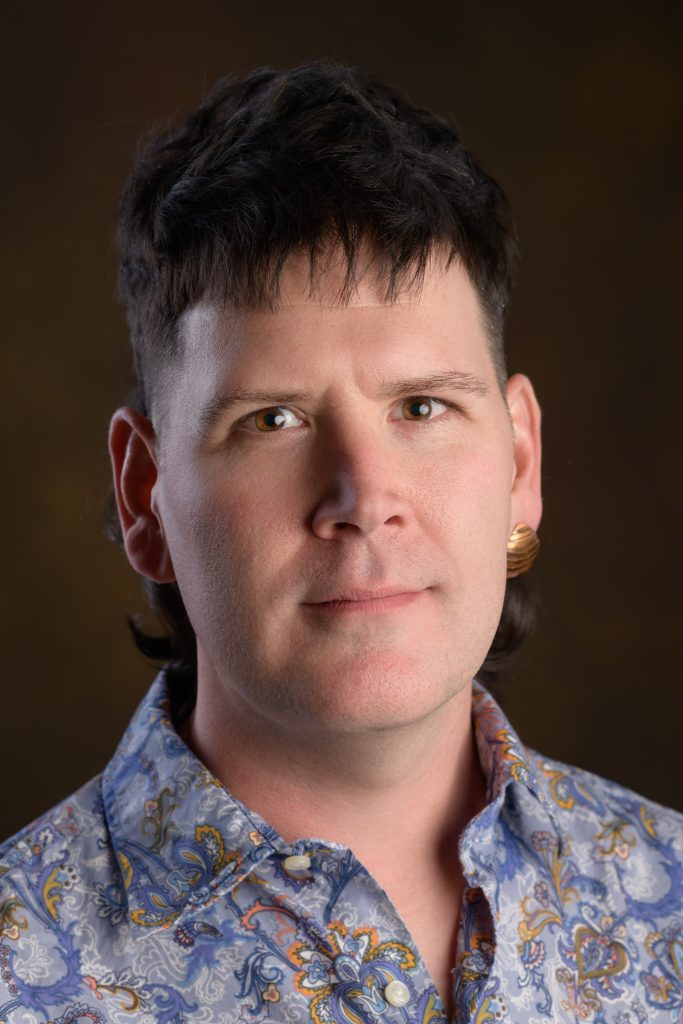
Recent Works
Mickelson’s forthcoming releases include All This Divide in the U.S. and Picturing in Canada, which draws on their roots as a visual artist.
“Visual arts is another huge inspiration to me,” says Mickelson. “And most of the book deals with what’s called ekphrastic work, which is poetry about visual art. One big inspiration right now is my ongoing obsession with Andy Warhol.”
Mickelson’s works, such as Picturing, seek to understand history and poetics by centering marginalized voices and stories often excluded from mainstream narratives.
“It deals with visual art history, and queer artists, and how LGBTQIA people have been sort of erased from art history,” Mickelson says. “I really love the work of Jasper Johns, but even [in] a college level or history course, his sexuality was never mentioned, or the fact that he was dating Robert Rauschenberg, another major abstract expressionist at the same time. Their relationship is definitely an important part of the work.”
In works such as All This Divide, Mickelson uses history as a lens to illuminate the present.
“I look at the history of the western United States, specifically the 1800s, to talk about what happened there: residential schools, environmental exploitation, illness, racism,” says Mickelson. “I look at those things and I use them as a springboard to talk about them in the present day.”
Mickelson’s author site characterizes their works’ primary themes as addressing “questions of personal and collective legacy, of exile and inclusion, and how we may continue to live with and within the world.”
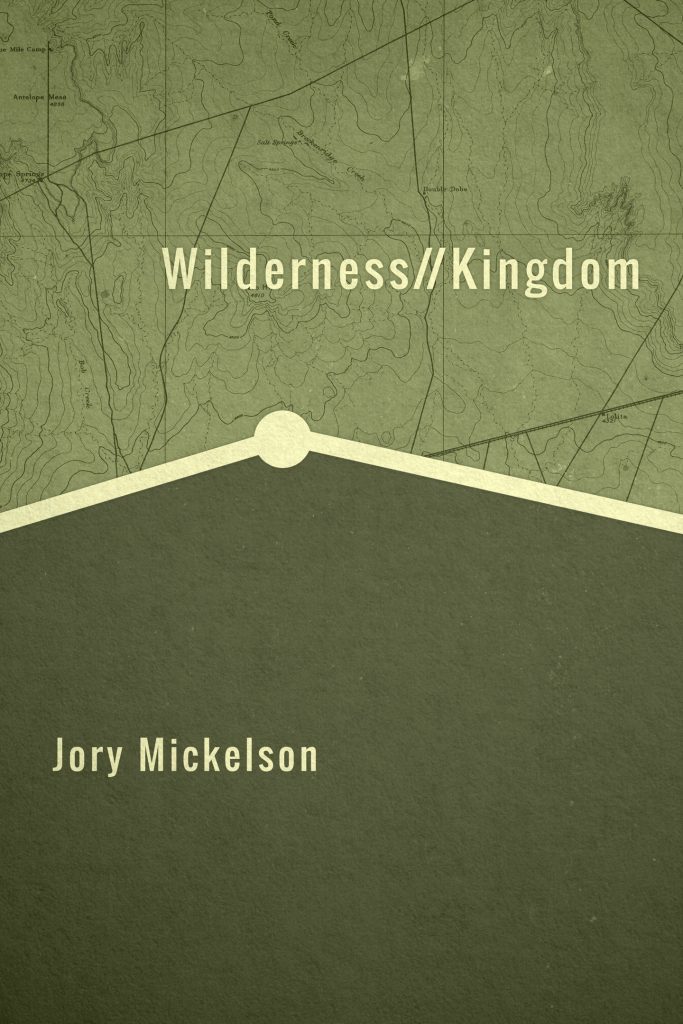
Creative Connections
Having taught English and creative writing as a graduate student at the University of Idaho, and a fourth grade poetry classes during the COVID-19 pandemic, Mickelson also continues their career as an educator.
“Part of it is imparting my own love of writing to other people,” Mickelson says. “And another is equipping people with the tools or the inspiration they need to keep writing on their own.”
Locally, Mickelson holds workshops at the Chuckanut Writers Conference and readings at Village Books’ Kitchen Sessions.
“The first bit of advice is to continue to write,” says Mickelson. “There’s no magic ritual or set of instructions that work for everyone. Every writer finds what works for them — but continuing to show up and be disciplined about the work is the most important part. The second is to read widely; especially for poets, reading poetry — and even the poetry you don’t especially like — is a super valuable tool.”
Mickelson regularly attends the Montana Festival of the Book and formerly wrote for 5 x 5, a literary magazine started by Western graduates. As the pastor at Faith Lutheran Church, they have collaboratively started a poetry reading series called “Strong Waters.”
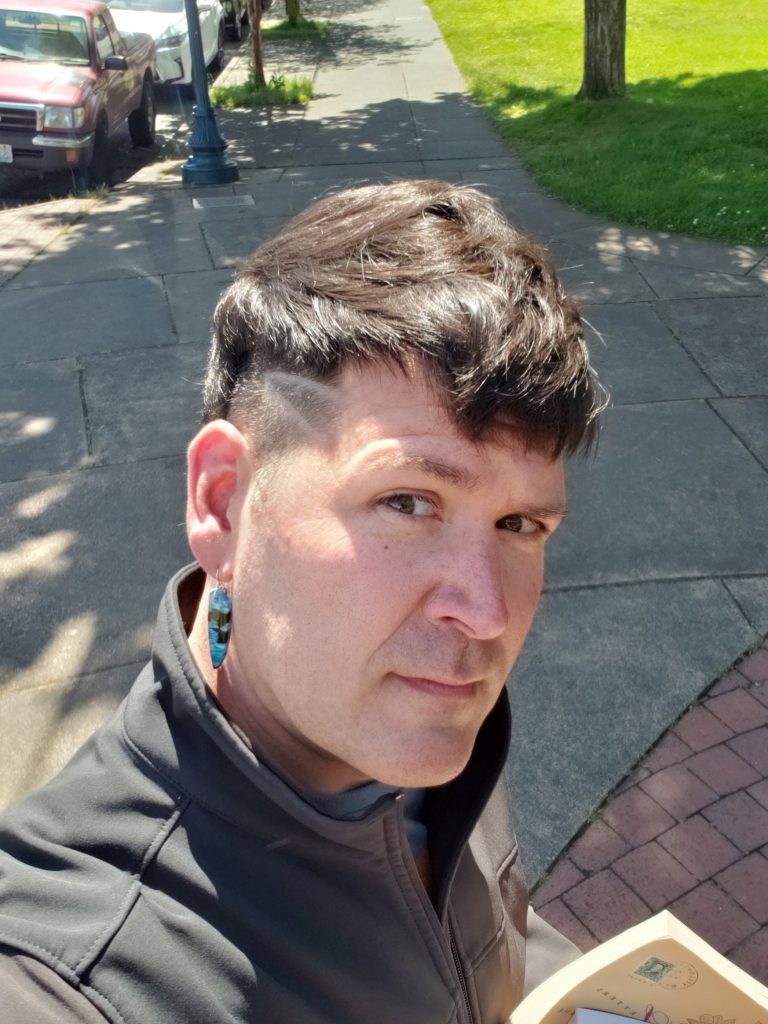
New Inspirations
Mickelson continues to write and host classes and workshops, with old collections and recent books available for purchase on their website.
“I’m also starting work on my fourth collection,” Mickeson says, “which deals with a historical figure and how their role mirrors what’s happening today in American politics.”
Readers can stay tuned for updates on Mickelson’s latest works on their website and Facebook.





























